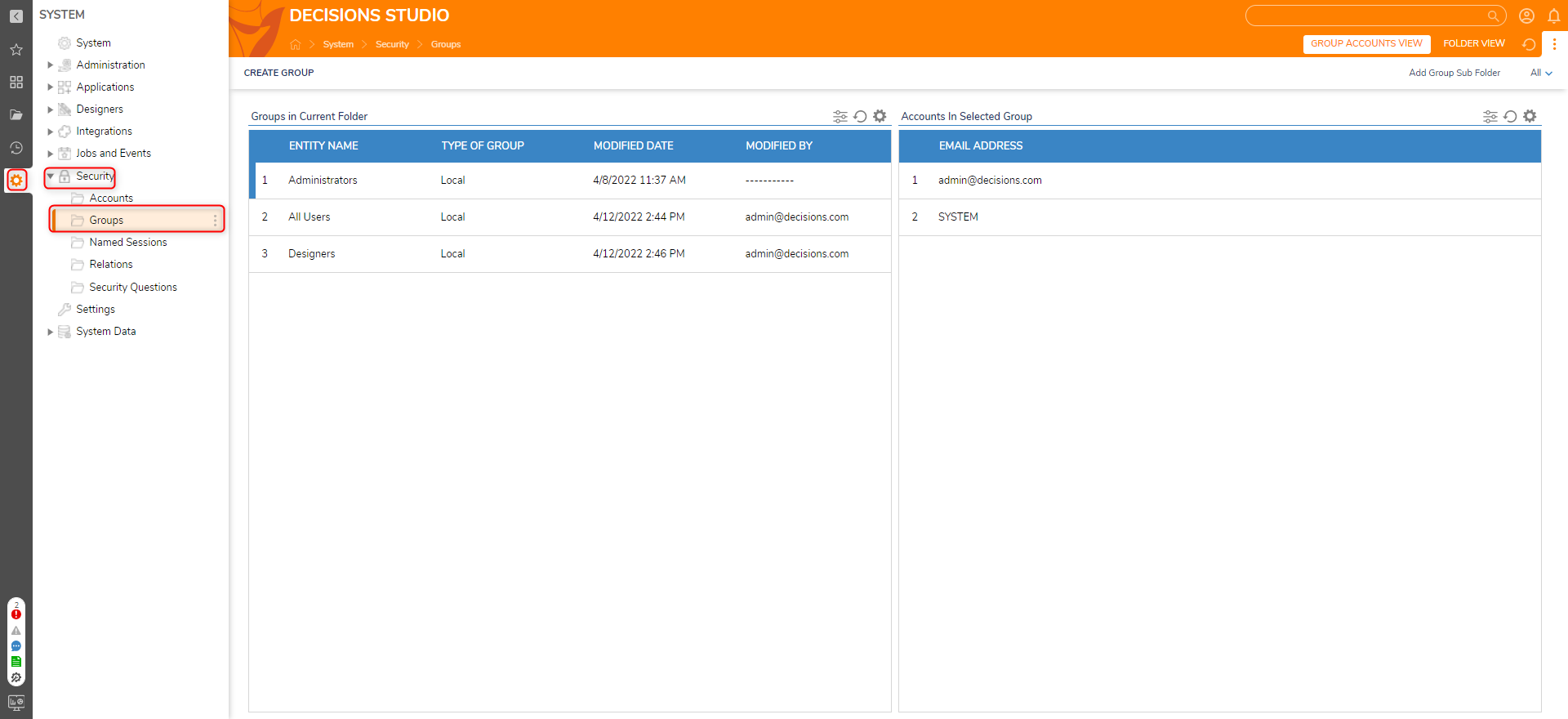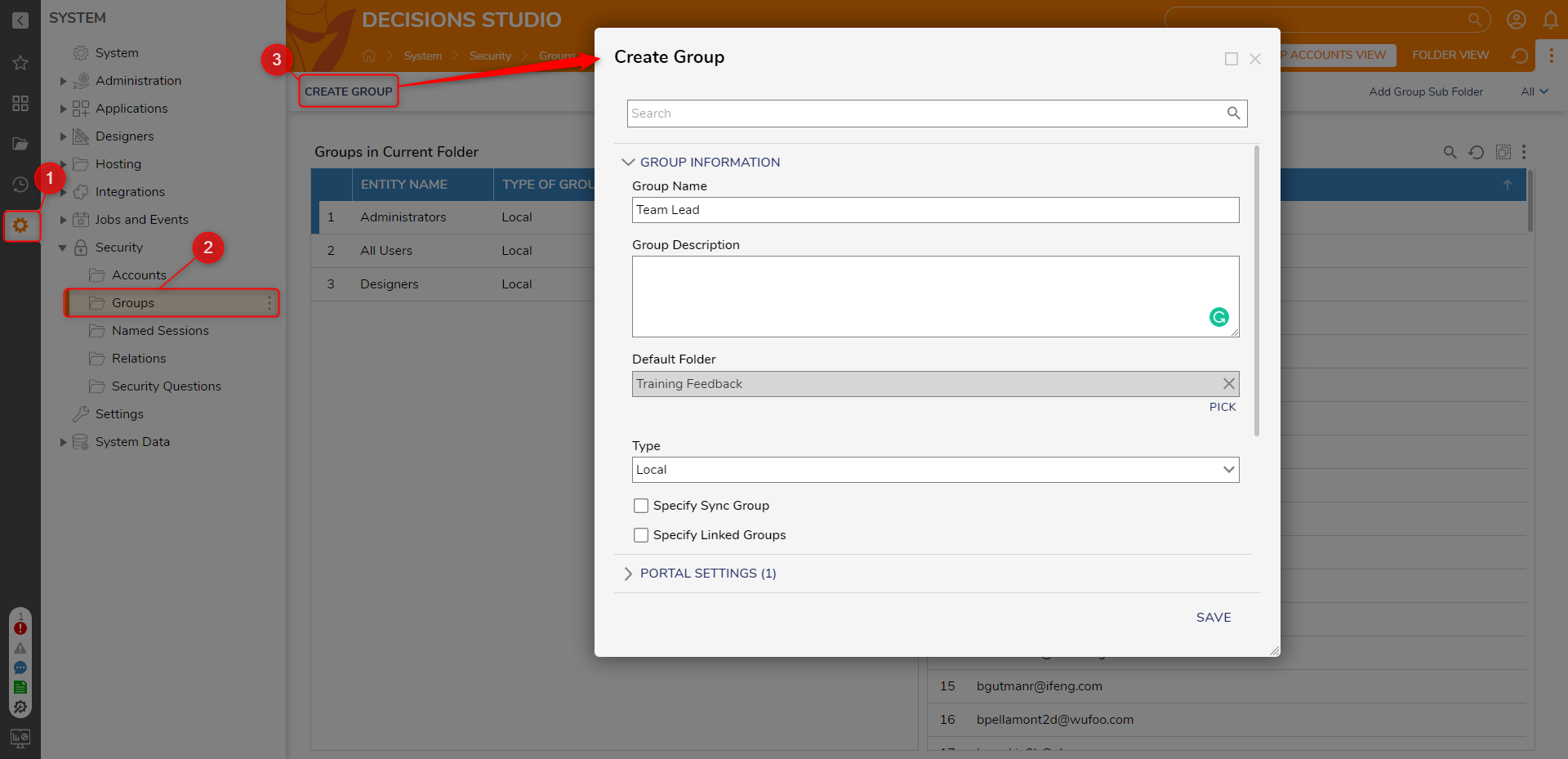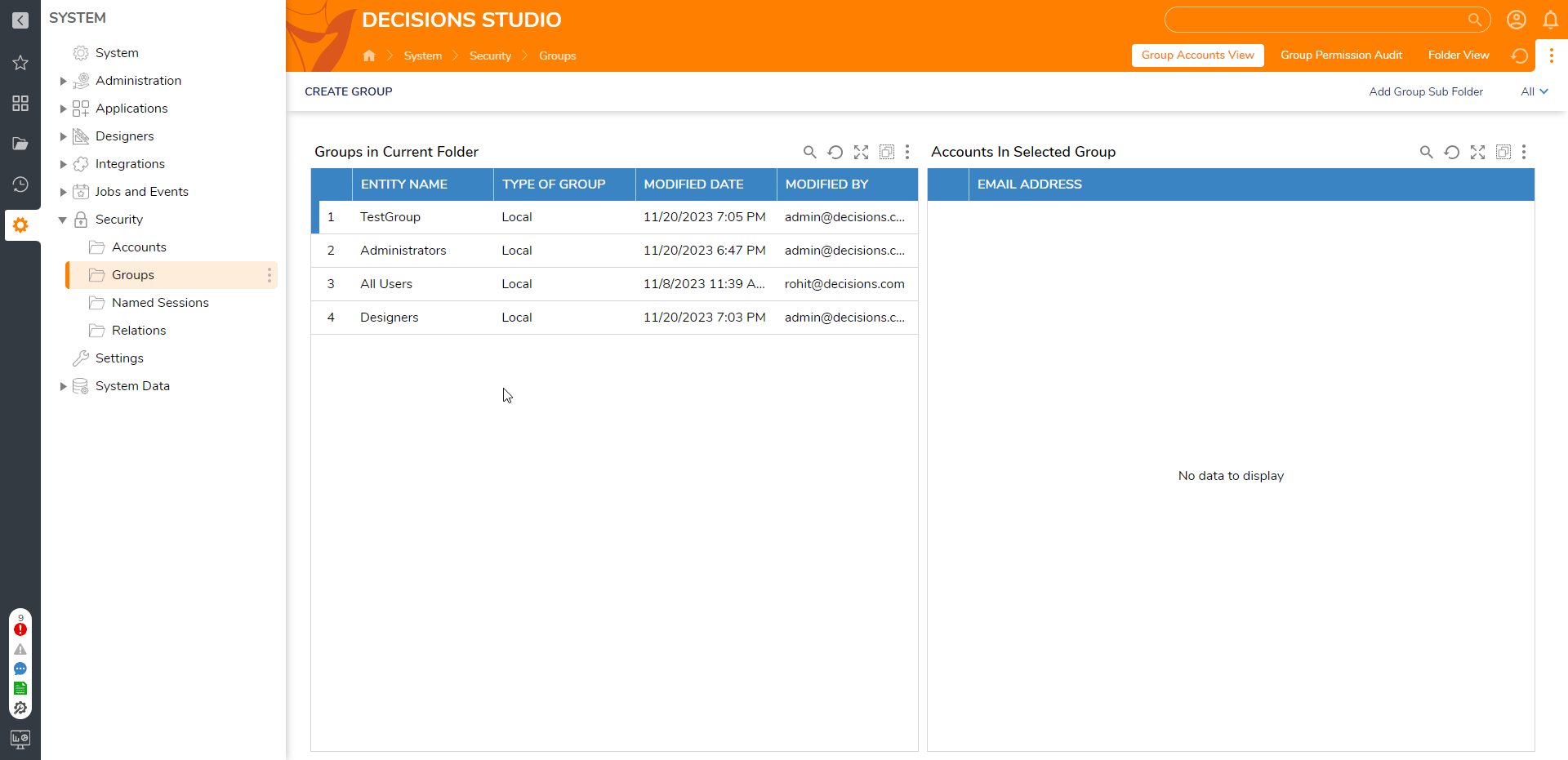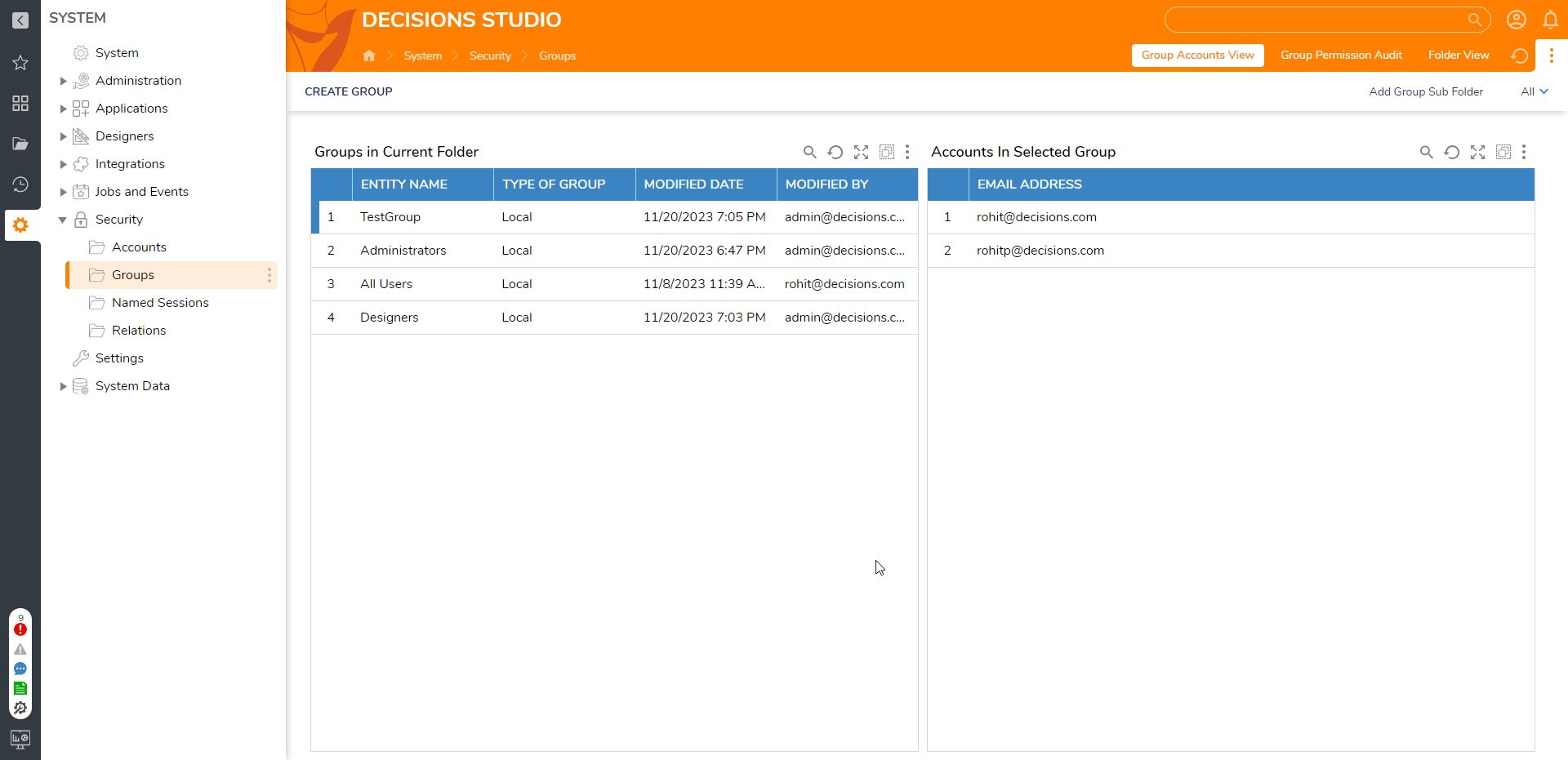| Feature Details | |
| Introduced in Version | -- |
| Modified in Version | 8.19 |
| Location | System > Security > Groups |
Groups are collections of user accounts that share similar responsibilities or system access permissions. They allow Admins to better organize Accounts in an environment by designated Role or administrative hierarchy.
For example, an environment may contain four groups of users: Tests, Developers, Marketing, and Admins. By sorting these users into Groups, applying specified permissions, and creating group-specific Pages and Dashboards, Admins can create a more uniform and specified work environment.
The following document demonstrates how to create a group and how to add/remove accounts from them.
Default Groups
Decisions have three pre-built user groups: Administrators, Designers, and All Users. These default groups are found by navigating to System > Security > Groups.
Default group permissions are given the least priority and are overridden by custom Groups and Account-level permissions in that order. For example, a user in the All Users group normally cannot access the Studio. However, the user would be able to access the Studio if added to a new, custom group with that permission enabled.
| Group Name | Portal Access? | Studio Access? | Description |
|---|---|---|---|
| Administrators | Yes | Yes | Full access and complete creative control of the instance. Admins can access the System folder, and its settings can access the instance in Maintenance Mode, etc. |
| Designers | Restricted | Restricted | Access and creative control are limited to My Apps and projects created and made accessible by Administrators. |
| All Users | Restricted | No | Can Interact with elements created by users in the Designers and Administrators groups. Group members cannot create any logic or Designer Elements of their own. |

Create a Group
- From the Decisions Studio, navigate to System > Security > Groups.
- Click CREATE GROUP on the Global Action Bar.
- In the Create Group window, provide a Group Name.
- Add a Default Folder; this will be the "Landing Page" for anyone in the Group.If an Account belongs to multiple Groups, the last configured Default Folder will override the previously configured Groups. If an Account has a Default Folder set on their individual Account Settings, this will override any Group Default Folder.
- Confirm that the new Group appears in the Groups in the Current Folder Report; selecting it will display any associated Accounts under Accounts In Selected GroupReport.

| Group Settings | Descriptions |
|---|---|
| Group Name | Name of the Group. |
| Group Description | Describe the use of the Group. |
| Default Folder | This will be the folder Decisions opens when users in this Group log in. |
| Type | Available types are Local and Remote. Local is for Groups created within Decisions. Remote is for Groups that were created through Active Directory. |
| Specify Sync Group | Syncs accounts within another group to this group. Provides additional options to add, remove, and unhook groups and accounts. |
| Specify Linked Groups | Applies permissions from one group to another group. |
| Default URL Parameters | Change the view of the Portal/Studio for the Group. |
| Force Default URL Parameters | When this setting is activated, users within the group will not be able to change the URL parameters. For instance, they will not be able to remove "&chrome=Off" at the end of the URL. This allows administrators to ensure that end users have a consistent experience. |
Add/Remove Accounts from a Group
- From System > Security > Groups, right-click the desired Group, then select Add/Remove Accounts.
- From the resulting window, Manage Accounts from Group: [GroupName], users will see 2 reports:
- Available: This Report shows all the accounts that are not assigned to the selected Group.
- Assigned: This Report shows all the accounts that are already assigned to the selected Group.
- Select account/s from the left Report and click on the Right arrow > button. This will move the accounts from the Available to the Assigned section, and the account will be added to the particular Group.

- Similarly, to remove the accounts from the Group, select account/s from the Right Report (Assigned) and click on the Left arrow < button. This will move the accounts from the Assigned to the Available, and the account will be removed from the Group.
Add/Remove Groups Assigned to an Account
- From System > Security > Accounts, right-click the desired account, then select Add/Remove Groups.
- From the resulting window, Manage Group for Accounts: [AccountName] users will see 2 reports:
- Available: This Report shows all the Groups that are not assigned to the selected Account.
- Assigned: This Report shows all the Groups that are already assigned to the selected Account.
- Select Group/s from the left Report (Available) and click on the Right arrow > button. This will move the Group/s from the Available to the Assigned section, and the Group will be assigned to the account.

- Similarly, to remove an assigned Group from the account, select Group/s from the Right Report (Assigned) and click on the Left arrow < button. This will move the Group/s from the Assigned to the Available section, and the Group will be disassociated from the account.
Feature Changes
| Description | Version | Developer Task |
|---|---|---|
| UX changes to Add/Remove accounts from the Group. | 8.17 | DT-032268 |
| Added Force Default URL Parameters setting to Portal Settings. | 8.19 | DT-037486 |